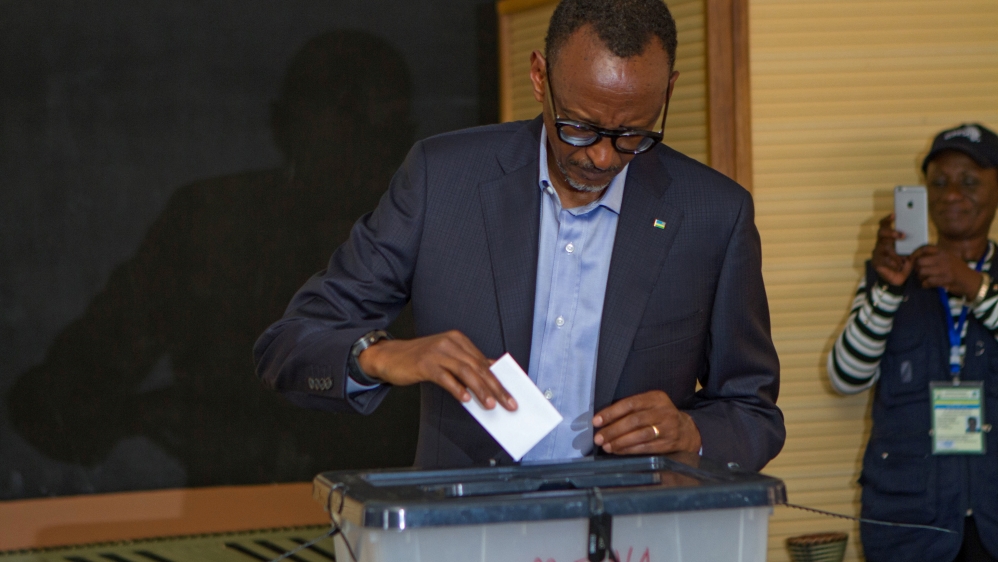With 80 percent of votes accounted for, the 59-year-old former guerrilla leader secured 98.66 percent, the National Electoral Commission’s Executive secretary Charles Munyaneza told a news conference.
“We expect that even if we get 100 percent of votes, there will not be any change,” he said.
Kagame has won international praise for presiding over a peaceful and rapid economic recovery in the east African nation since the 1994 genocide, when an estimated 800,000 people were killed.
But he has also faced mounting criticism for what rights groups say are widespread human rights abuses, a muzzling of independent media and suppression of political opposition.
 |
| Paul Kagame cast his vote in Kigali [Jean Bizimana/Reuters] |
About seven million people were registered to vote in the polls to pick a president who will lead the country for the next seven years.
The electoral board expected turnout to top 90 percent in elections that fielded two challengers.
Kagame, who cast his vote in Kigali’s Rugunga polling station earlier on Friday, said he would work to sustain economic growth.
“This is another seven years to take care of issues that affect Rwandans and ensure that we become real Rwandans who are [economically] developing,” he said in a speech broadcast live on television.
He won the last election in 2010 with 93 percent of the vote.
Although Kagame is believed to be widely popular, international rights observers have expressed concern over the political environment in which voting took place.
Al Jazeea’s Malcolm Webb, reporting from Kigali, said the ruling party claims that high turnout reflects its popularity.
“But opposition says people don’t have much choice and [the high turnout] reflects a climate of fear and oppression,” he said.
Allegations of repression
Last month, Amnesty International, the international rights monitor, warned that the elections risked being held under “a climate of fear created by years of repression” due to alleged state intimidation of opposition.
Under Kagame’s rule, some dissidents were killed after they fled abroad, in cases that remain unsolved. The government denies any involvement.
Kagame faced only two challengers: Frank Habineza from the small Democratic Green Party – the only registered opposition party – and Philippe Mpayimana, a little-known independent candidate and former journalist.
READ MORE: Peace Clubs: Rwanda’s post-genocide search for renewal
Habineza had told Al Jazeera before the election that he expected a clean sweep at the polls.
“Tonight I predict a result of 70 percent in my favour … according to my calculations that is what I will get if it is a free and fair election,” said Habineza.
“If I don’t get it, I will accept the results provided it is free and fair. We have already struggled with campaigning and some of our supporters have been scared off, but I hope they will vote today.
|
|